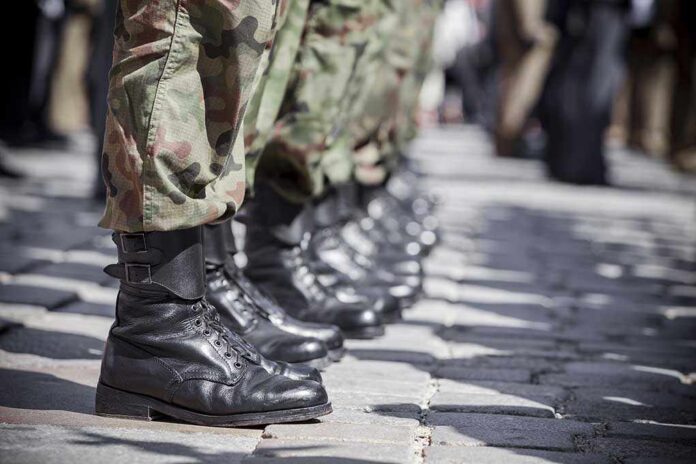The United States bolsters its military presence in the Middle East as tensions escalate between Israel and Hezbollah, prompting urgent evacuation warnings for American citizens in Lebanon.
At a Glance
- U.S. deploys additional troops to the Middle East amid rising violence
- State Department urges Americans to leave Lebanon immediately
- Israeli strikes in Lebanon result in highest single-day death toll since civil war
- U.S. plans to propose de-escalation measures at U.N. General Assembly
- World leaders call for restraint and respect for Lebanon’s sovereignty
U.S. Military Reinforcement in the Middle East
The United States is increasing its military presence in the Middle East in response to escalating violence between Israel and Hezbollah in Lebanon. The Pentagon has announced the deployment of additional troops to the region, adding to the approximately 40,000 U.S. personnel already stationed there. This move comes as a precautionary measure to protect American interests and allies in the area.
The U.S. military strategy includes the potential positioning of two aircraft carrier strike groups in the region, a rare occurrence highlighting the gravity of the situation. The USS Harry S. Truman has departed for Europe, potentially allowing both the Truman and the USS Abraham Lincoln to remain in the area. A Marine amphibious ready group is also stationed in the eastern Mediterranean Sea, prepared to assist with evacuations if necessary.
The new deployments come amid a spike in violence between Israel and Hezbollah forces in Lebanon that is raising the risk of a greater regional war. https://t.co/P7m96wnmUX
— Military Times (@MilitaryTimes) September 23, 2024
Urgent Evacuation Warning for Americans in Lebanon
The U.S. State Department has issued a stark warning to American citizens in Lebanon, urging them to leave the country immediately while commercial travel options are still available. This advisory comes in light of the unpredictable nature of the ongoing conflict between Hezbollah and Israel, and recent explosions throughout Lebanon, including in Beirut.
“Due to the unpredictable nature of ongoing conflict between Hezbollah and Israel and recent explosions throughout Lebanon, including Beirut, the U.S. Embassy urges U.S. citizens to depart Lebanon while commercial options still remain available,” the State Department cautioned Saturday.
The urgency of this warning underscores the growing concern within the U.S. government about the potential for rapid escalation in the region. The State Department’s message is clear: American citizens should not delay in making arrangements to leave Lebanon to ensure their safety.
Escalating Violence and International Response
The situation in Lebanon has deteriorated rapidly, with Israeli forces conducting significant strikes resulting in hundreds of deaths. The Lebanese Ministry of Public Health reported 1,835 people wounded and 54 hospitals treating patients. These strikes have led to the highest single-day death toll in Lebanon since the end of its civil war, with 558 people killed, including 50 children and 94 women.
“World leaders are sounding the alarm about a “full-fledged” war, calling for de-escalation after devastating Israeli air strikes in Lebanon ratcheted regional tensions amid Israel’s ongoing war on Gaza. Secretary-General Antonio Guterres said he was “gravely alarmed by the escalating situation along the Blue Line”, referring to the demarcation line dividing Lebanon from Israel and the occupied Golan Heights, as well as “the large number of civilian casualties”.
The international community has responded with calls for de-escalation. The United Nations Secretary-General Antonio Guterres expressed grave concern over the situation and the large number of civilian casualties. UNICEF head Catherine Russell highlighted the psychological distress among children due to displacement and shelling. Various countries, including Jordan, Egypt, Qatar, and Saudi Arabia, have urged restraint and respect for Lebanon’s sovereignty.
As tensions continue to rise, the U.S. government is preparing to propose measures to de-escalate the situation at the upcoming U.N. General Assembly. Defense Secretary Lloyd Austin has been in communication with Israeli Defense Minister Yoav Gallant, advocating for a cease-fire. The U.S. aims to defend Israel while also protecting U.S. and allied personnel and assets in the region, walking a delicate diplomatic line in an increasingly volatile situation.
Sources:
- US is sending more troops to the Middle East as violence rises between Israel and Hezbollah
- ‘Unimaginable consequences’: World reacts to Israel’s strikes on Lebanon











